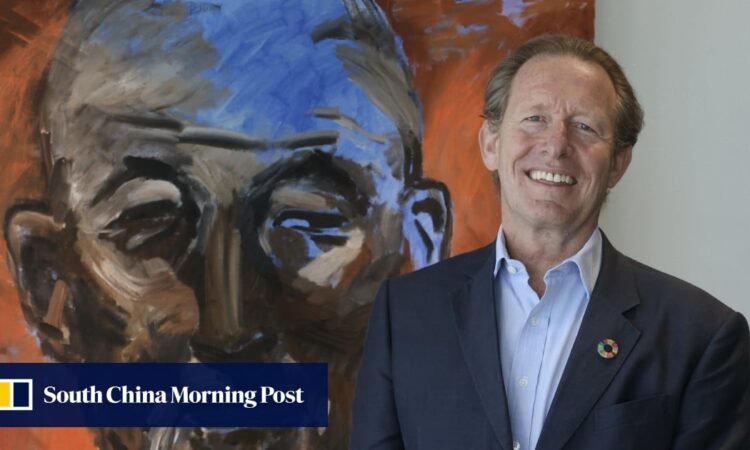China’s outbound investments to drive demand for private credit, ADM Capital founder says

ADM Capital, a Hong Kong-based private credit manager with US$2 billion in assets, sees opportunities for non-bank capital providers to fill the financing gap, particularly Chinese companies seeking outbound investments and Asian enterprises with environmental, social and governance (ESG) potential.
“We’re seeing a lot of interest from Chinese companies diversifying manufacturing or increasing distribution in markets outside China,” said founding partner Christopher Botsford. “China outbound holds a lot of growth potential for mid-market private credit providers.”
Chinese companies that cannot get funding from local banks because of the complexities of cross-border transactions are turning to private credit lenders like ADM Capital for funding, he said.
Once a borrower is established in the offshore market, local banks could step in to refinance the loan, allowing the original private credit lender to exit.
While China’s overall outbound direct investment increased 0.9 per cent year on year to US$147.9 billion in 2023, Chinese firms’ overseas mergers and acquisitions (M&A) value rose 20 per cent to US$39.8 billion, according to an EY report.
Within the M&A space, the top three sectors by deal value were technology, media and telecoms, advanced manufacturing and mobility, and healthcare and life sciences. The top destinations were Canada, the United States and the United Kingdom.
One of ADM Capital’s lucrative lending deals was with China Minsheng Investment Group. A three-year secured loan of US$43 million to the Shanghai-based private equity firm for acquiring Grouse Mountain Resort in Canada achieved an internal rate of return of 15.8 per cent for the private credit manager.
Half of its allocations in China were related to cross-border opportunities over the last decade, according to the company.
ADM Capital, which was set up in 1998 following the Asian financial crisis, has transformed itself from a distressed assets lender to one focused on mid-market companies with strong ESG in the region.
“We integrate ESG in every loan we underwrite,” said Botsford. “Not only is it the right thing to do, but it also enhances refinancing options and delivers a much better outcome.”
Peak distress: Hong Kong luxury property owners turn to pricey private loans
Peak distress: Hong Kong luxury property owners turn to pricey private loans
The credit manager believes social and environmental aspects of a business ultimately influence its performance and refinancing risk.
As part of a US$20 million loan extended to KreditBee, a microfinance company in Bengaluru, India, ADM Capital included a gender balance performance indicator in the loan document after noticing 85 per cent of KreditBee’s clients were male.
“The company’s loan losses came down, and it started to appear on the radar of venture capital companies,” Botsford said. “From our perspective, the quality of that portfolio and the availability of new capital coming in improved. It was a win-win.”
The International Finance Corporation, the investment arm of the World Bank, in January committed US$60 million to ADM Capital’s smart city emerging Asia fund, with targeted size of US$300 million. The fund aims to support the development of smart cities in countries including China, India and Indonesia.
On China, Botsford said the firm has been following the country’s five-year plan, which outlines the government’s long-term development goals.
ADM Capital is considering repositioning residential buildings into senior living units following Beijing’s announcement of a national strategy to address concerns of an ageing society. Other opportunities include car parks in the world’s second-largest economy where the middle class is fuelling demand for electric vehicles.
“Overall, we believe a cautious investment approach, targeted in sectors that align with the government’s longer-term economic and social plans, can be interesting even as the Chinese economy slows,” Botsford said.
He emphasised the growing demand for private credit in Asia as it bridges the funding gap for small and medium-sized enterprises in the region’s fast-growing economies.
“As geopolitics pressure companies to move around the region more, we see a lot more inter-regional transactions and a growing need for private credit,” he said.
